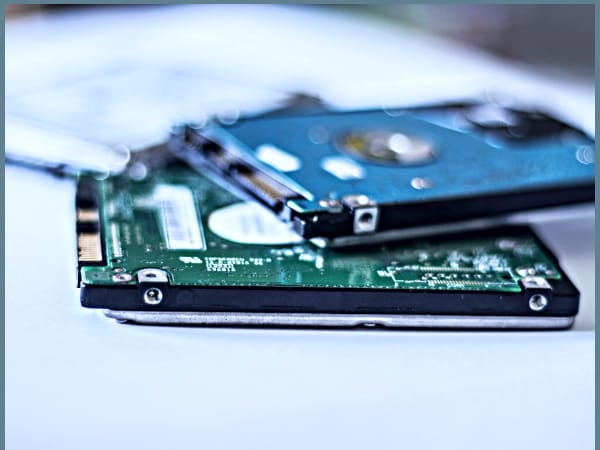Difference between Hard Disk Drive (HDD) and Solid State Drive (SSD)
The difference between hard drives and solid state
SSD: A solid-state drive or SSD stores data on flash memory chips. The data is stored in the form of electrical charges. SSD’s do not have moving parts which makes them more durable.
HDD: HDD’s are magnetic data storage devices. They’re made up of mechanical components such as a platter, read/write head, etc. HDD is still the most popular storage devices among a majority of users. They offer enormous storage capacity & are inexpensive.
Differences between HDD and SDD –
| HDD | SDD |
|---|---|
| HDD stands for Hard Disk Drive. | SSD stands for Solid State Drive. |
| HDD contains moving mechanical parts, like the arm. | SSD does not contain, mechanical parts, only electronic parts like IC’s. |
| HDD has a longer R/W time. | SSD has a shorter R/W time. |
| HDD has higher latency. | SSD has lower latency. |
| HDD supports fewer I/O operations per second. | SSD supports more I/O operations per second. |
| HDD has fragmentation. | SSD does not have fragmentation. |
| HDD is heavier in weight. | SSD is lighter in weight. |
| HDD is larger in size. | SSD is more compact in size. |
| In HDD the data transfer is sequential. | In SSD the data transfer is random access. |
| HDD is less reliable due to the possibility of mechanical failure, like head crash and susceptibility to strong magnets. | SSD is more reliable. |
| HDD is cheaper per unit storage. | SSD is costlier per unit storage. |
| HDD can produce noise due to mechanical movements. | SSD does not produce noise. |
All above about The difference between hard drives and solid state
Related technical blogs – Technical Tag



